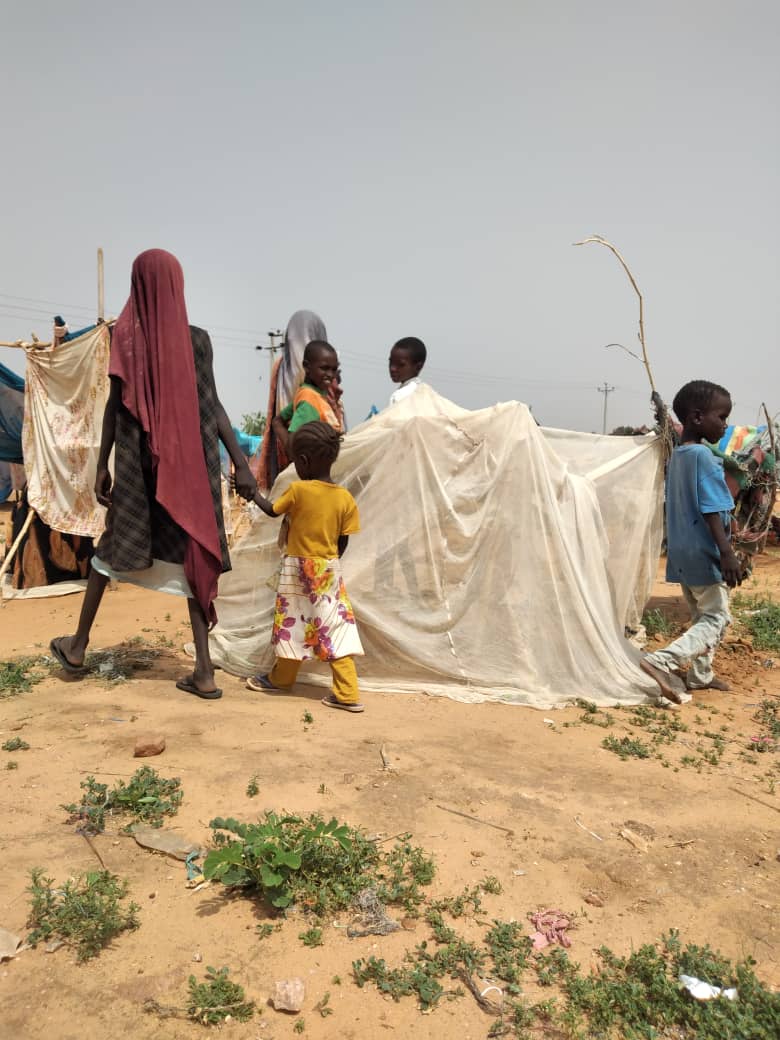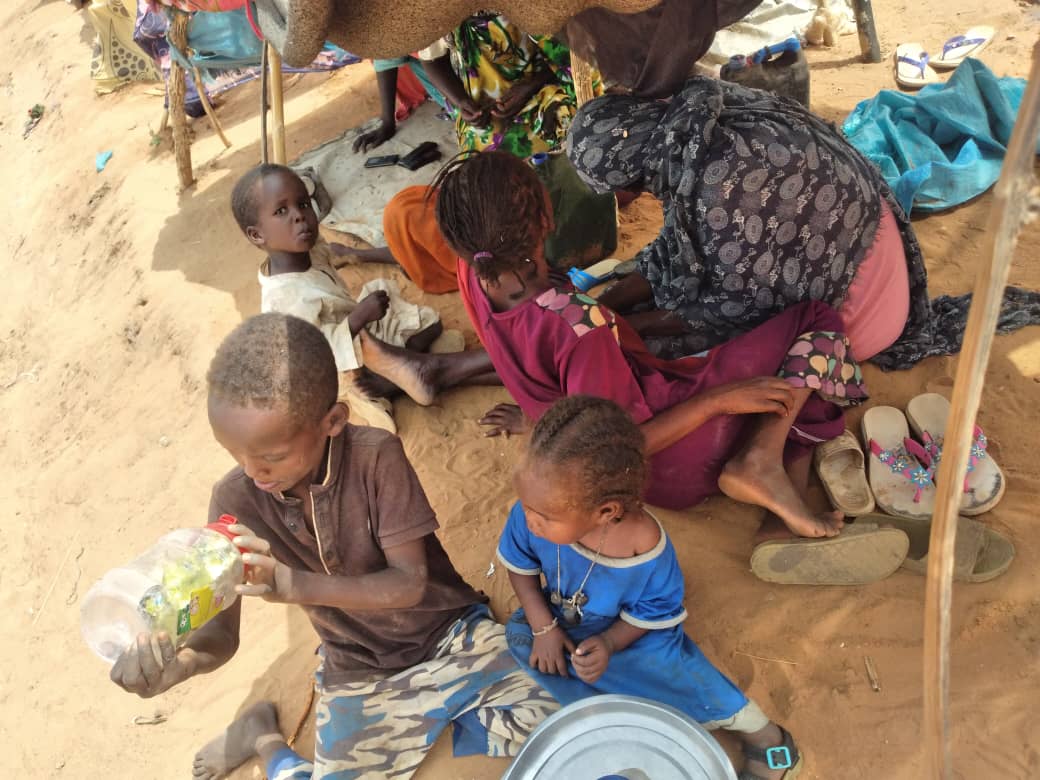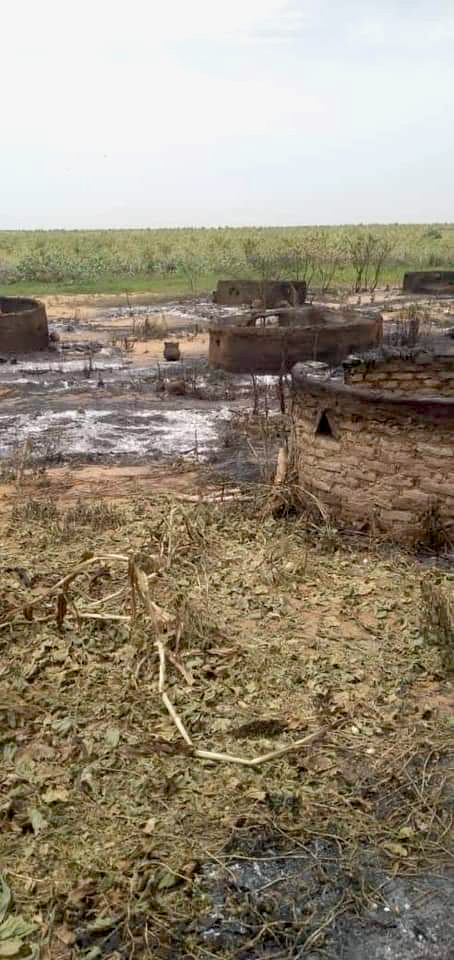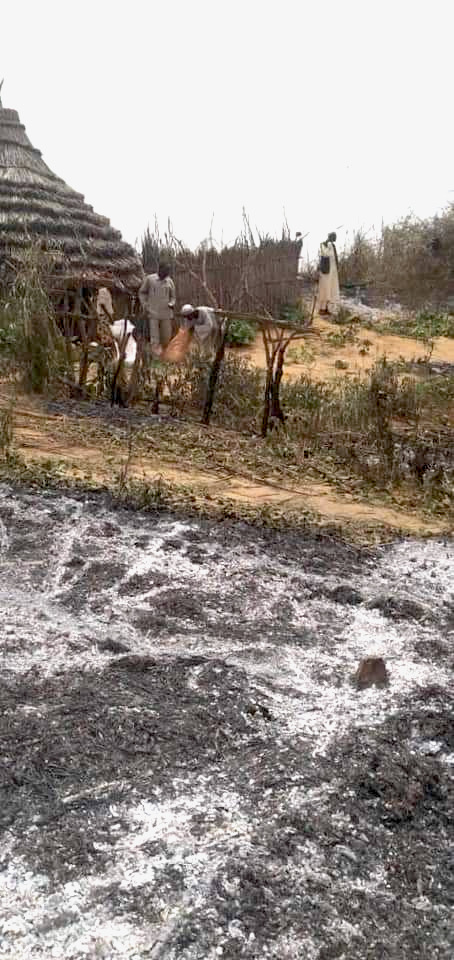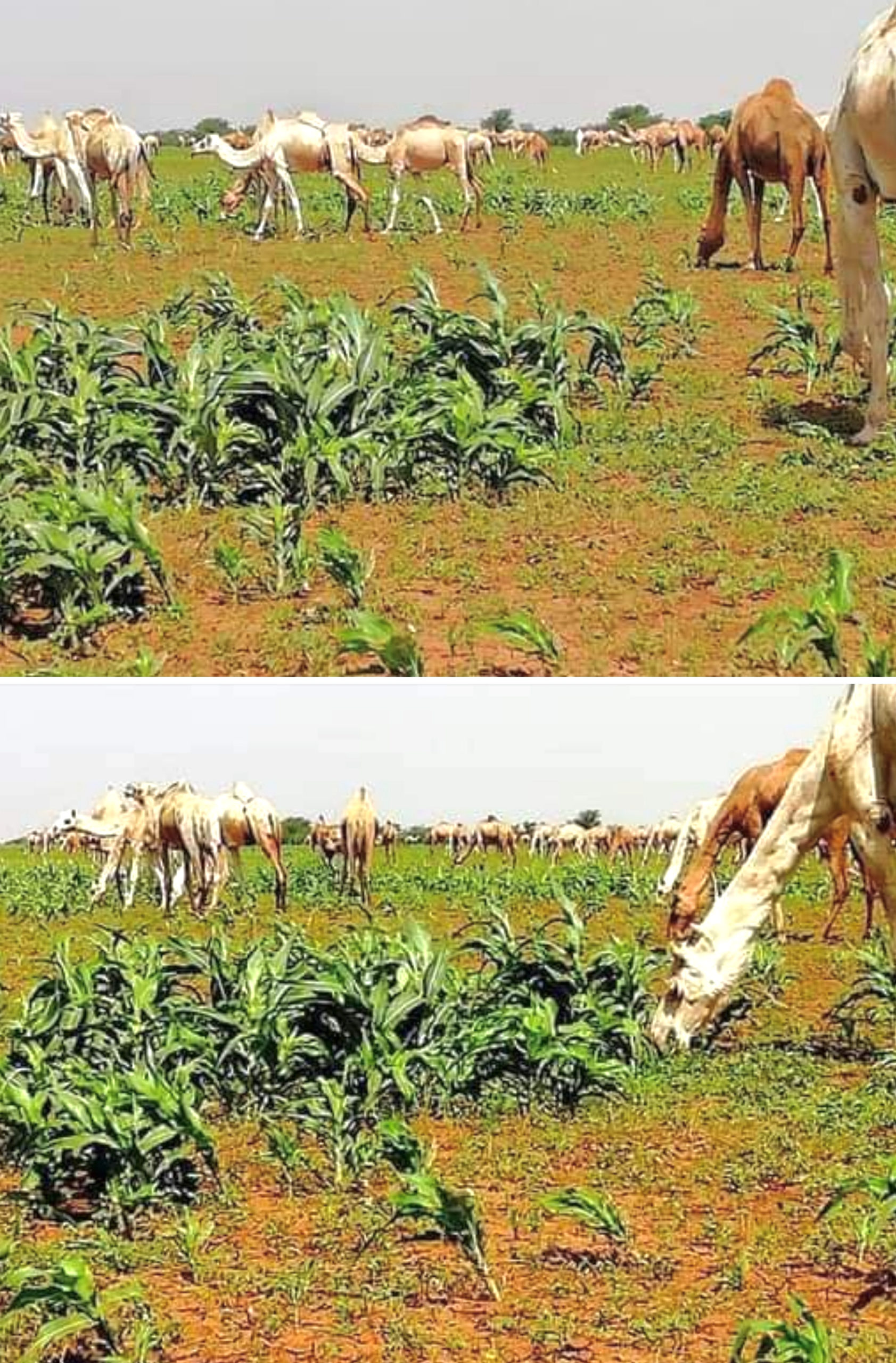Project Update, September 26, 2021: Responding to Sexual Violence in Darfur | ANNEX
Gaffar Mohammud Saeneen and Eric Reeves, Co-Chairs; Julie Darcq, Online Campaign Coordinator; Nancy Reeves, editor and financial facilitator
A statistical account from the coordinating counselor of Team Zamzam, September 2021
-
Seven (7) fistula surgeries, including pre- and post-operative care by a dedicated team of women from Team Zamzam (83 girls and women on the waiting list)
-
Psychosocial counseling:
113 individual counseling sessions in Zamzam camp
29 group counseling sessions in Zamzam camp
-
Distribution of food and other humanitarian supplies:
Food (pasta, sugar, rice, cooking oil, sanitizing soap, tea flour):
284 families (612 individuals)
• Medicine, additional sanitizing soap:
103 recipients of soap; 26 girls received specific medicines
Short report by Coordinating Counselor
TEAM ZAMZAM:
El Fasher: September 11, 2021
Point of Departure
[1] The current situation:
Any observer of Sudanese affairs, especially of what has been going on in Darfur, will have noticed the escalation of violence against defenseless civilians, and women in particular, since the end of last year until the moment of my writing this report in September. Here we (Team Zamzam) intend to highlight the latest developments in the form five points.
Before I get into the heart of the problem, on behalf of my colleagues, I want to send many thanks and appreciation to the defenders of the rights of marginalized women in Darfur and around the world. I also take this opportunity to extend our collective gratitude, with huge appreciation, to the donors and supporters of our project, without whom we couldn’t have reached our goals. This project has not only brought immense joy to fill up the hearts of those mentally and physically wounded by the cycles of violence, but it has brought about a new concept of humanitarian solidarity and renewed the highest human values, which today are almost non-existent in Sudanese society.
As a team, we have learned through this great project many techniques and skills that we used to dream of. We have learned the importance of humanitarian work in our broken society. We have learned the importance of civic work and the essence of solidarity. We learned the importance of teamwork and perseverance. We have learned how to heal the wounded hearts and, most important of all, we learned to elevate our awareness of the suffering experienced by the oppressed and in particular the victims of sexual violence.
We have mastered many useful techniques in responding to the social complications resulting from sexual violence, and we are very proud of what we have achieved so far. I want to conclude by saying that we are still suffering from several regular coordination problems, and this was and still is the result of electricity cuts and difficulty with the communications network and the Internet throughout Darfur, especially in North Darfur. Therefore we were unable to send all the updates on time and we apologise for any delay.
[2] Views and the demands of the newly displaced
From the end of July through the present, we in Zamzam camp have borne witness to the newly displaced who fled from attacks by the Janjaweed and other armed militias. The armed men had as their primary aim looting, pillaging, burning, killings, sexual violence, and terrorising innocent people. No one knows, and we cannot even imagine, the extent of the physical and psychological damage that they have inflicted on these fleeing people. But from our experience during a close follow-up of events, we can say with certainty that there has been a tremendous psychological impact, one that is still very visible on the faces of many women and young girls.
Most of the recently displaced want to go on with their daily lives as if nothing happened to them, despite their recent ordeals; but the painful memories that provoked by the Janjaweed attacks, the anger over the loss of their properties, and the idea of leaving their farms behind—all this has added to a growing despair over the Sudanese government, including local authorities, who have failed to provide people even minimal services. They have failed to provide humanitarian assistance and security. These failures are the common denominator in the experience of the countless numbers who have fled, and the recurring subject in their gatherings during long days of inactivity.
Some of those newly displaced by ethnically-targeted violence in North Darfur
Here at the camp, men gather in the corners of fragile tents recently constructed by hand from old, tattered blankets and plastic sacks. They talk angrily with grieving voices, and so, too, do the women, who gather together in the evenings for quadat, which means sitting down together for sisterly chat. The women, too, talk about their daily sorrows in calm tones. When we asked one of the local leaders (a sheikh) about the affected villages and their suffering and plight, he said: “My daughter, thank you for asking about our daily condition; and we do appreciate what you are doing here. But I must tell you that we are all bitterly disappointed by the entire government, from Prime Minister Hamdouk to our state governor.” And the Sheik continued saying: “In our country we feel like strangers, our dignity is violated in broad daylight by foreign Arab mercenaries and Janjaweed militias. And the people who are supposed to protect us cower before [Hamdan Dagalo, aka Hemeti, leader of the brutal Rapid Support Forces and deputy chair of the Sovereign Council].”
Some of the destruction of villages and this season’s crops near Zamzam camp, North Darfur
This was the view of most of the men in the camp. One of the women said: “We fed up with the war; we are fed up with killings and forced displacements; we are tired of the rapes and beatings of young girls,” and she continued by saying: “if the government cannot disarm the Janjaweed so that we can return peacefully to our villages, then they must find another solution to how we will live.”
[3] The voices of women in the camp and their actual demands
In the course of an endless cycle of human rights violations over the past two decades in Darfur, virtually all agree that women are the group most affected by this ghastly conflict. But today there is a glimmer of hope on the horizon for these steadfast women of Darfur, women who have defied all the hardships that come from being exposed to violence in all forms and to the unbearable suffocation of normal life. Even these extremely difficult circumstances have had the positive effect of contributing to the creation of a spirit of solidary and defiance.
In creating such a spirit of defiance and solidarity, women are increasingly finding their own meaning, their own ways of dealing with the realities of camp life. The search for meaning among the camp women is growing steadily. As their frustration has grown, their voices have become more insistent and their demands for respect of their rights are on rise. Aisha Suleiman, one of the active members of the secret women’s group (Shabakah) said, “Today we do not need to wait for men to bring us our rights; we are the ones who bore the burden of war; we are the ones who do the farming; we are the ones who do most of the hard work; we are the ones who raise the children; and we are the central pillar of this society.”
“But unfortunately, despite this, the men of this country still look at us without a minimum of respect; so that’s why now we are making plans discreetly to gather all the women of the camp to face the challenges by ourselves.”
With determination and steadfastness, Awatif Ishaq, one of the women newly arrived in camp, told me, “We engaged in agriculture with high aspirations, and we were optimistic that this season would be bounteous; and some of us were singing about peace. But soon we were surprised by the attacks and violence; and today, all we wish from the state is to provide us with the tools for work, tools like sewing machines and other things that can be useful for work if our government is not be able to provide us with security and safety from the Janjaweed.” Awatif continued by saying, “we can work, and we have many who depend on us. We can do much more but we need security first.”
[4] Testimonies of victims of sexual violence
The impact of sexual violence against women—and in particular against young girls—in Darfur’s war still haunts its victims with nightmares, years after the events. And yet this strange, barbaric phenomenon continues on a daily basis. And recent events southwest of El Fasher are clear evidence of what is happening in Darfur.
At the beginning we did not know the extent of these heinous crimes, nor we did have any real clue as to its psychological impact on the victims. But when we started our counseling work through Team Zamzam, aiming to find solutions, then the bleak picture of this miserable reality became clear to us—a reality that had continued for many years in silence, denial and total neglect of the victims. A patriarchal society had deliberately tried to conceal the effects and the magnitude of these crimes. Since we began our activities toward the end of 2020, we have met and have identified many hundreds of victims, providing counseling to many hundreds of victims through private talk sessions and our broader counseling sessions; and we have to come to a much fuller understanding of the darkness that has engulfed so many victims.
What happened to these victims is sickening and there isn’t enough space within these lines to reveal the full story of such a dark and grim picture. That will come at the for appropriate time. The most disturbing part of all we have seen has been the stigma and social isolation that victims suffer from in total silence, often for years, as if they were the perpetrators.
With a collective team effort and strong determination, we have begun breal down the barriers created by social stigmatizing and allowed hundreds of the victims to come forward to talk without hesitation. We are truly proud of what we have accomplished so far, even though the road ahead is still long and filled with thorny challenges.
If bad things happen to good people, the damage can only be repaired by actions governed by ethical standards; and through we our actions we believe we have managed to bring relief to the lives many hundreds of young girls who were on the verge of psychological breakdown when we met them. Today some of them became part of our team. For an example, read the courageous story of Khadiga Saleh, nicknamed “the ambassador”:
Testimony of Khadiga Saleh Yahya (“the ambassador”), September 11, 2021
“My name is Khadiga Saleh Yahya, although now my friends call me the ambassador. I don’t what it means, it but I like it. I am 19 years old, from Dolby village. When I was 11 years old, we came to this camp to escape the attack on our village. I have never seen my father in my life: he was killed by Janjaweed when I was a small child.
“Last year, we went to farm after life in the camp was too hard for us. We went to farm with my mother, two of my older sisters, my younger brother, and some of our neighbors. After two weeks there, the Janjaweed came in their cars and took me with them in a Toyota car by force of arms. My family had tried to save me, but they were beaten so badly that my older sister’s arm was broken. In her fight against five strong men, my mother lost consciousness.
“The Janjaweed took me to their place, which was about an hour away in a mountainous area; I didn’t know anything about this place. After that, some of them returned to the farm to threaten my family. They said to my mother if she wanted my return, she should not make any move or inform people; otherwise, they would kill me. The Janjaweed held me for four days, and four of them took turns on me every day. All these they were laughing while they were doing their stuffs [sexual assaults] on me. On the fourth day, I was returned to my family in the early hours and they left in a hurry.
“After this, I couldn’t walk for two months. My mother immediately tried to take me to the hospital in El Fasher, but in El Fasher I was refused. At the time I was very worried about friends and neighbours. All I was thinking about is that people would find out that my virginity was lost.
“After returning to Zamzam camp I couldn’t sleep for many months. Finally, I was approached by the sisters from Team Zamzam, who had been secretly contacted by my sister. At the beginning I was worried about talking to them; but after many visits they convinced me to talk. After attending several sessions, my life began to change for the better day after day, until I found myself taken part in convincing other victims. It has been three months now, and I’m part of the Team; I became good friends with seven of them.
“The sisters not only helped me to get over bad nightmares, but they made me feel as if I were their own sibling; I will never be able to forget their kindness. I have long dreamt of going to school one day to learn writing and reading; and now, because of the sisters, I know how to write the names of people, animals, and quite few things. I want to continue learning and helping other people to get out of depression.”
[5] Fistula patients and their testimonials
An excellent surgical achievement has been made in the last two months, with seven patients per month, and this is given hope to those patients who have been patiently waiting for their chance. Currently, there are 81 girls and women on waiting list; seven are currently receiving treatment. A separate report about their progress and independent testimonials will forthcoming when all the data are finalised (see below)
A Short Report on Fistulas from the Coordinating Counselor, Team Zamzam | September 13, 2021
As I promised in my previous report, I want to shed some light on the fistula patients who come to us, their psychological state, and our achievements in responding to these serious medical crises. I conclude with some of the testimonies [these are all to be found here—ER]
When we started dealing with fistula patients several months ago, we did not realize the extent of the suffering and pain experienced by these girls and women; nor did we have a sense of their number. But it is now almost nine months since the first case, and we have a more complete picture of realities in the camp are.
The psychological state of the patient is our most important focus before, during, after the surgical treatment; we remain engaged with the patient until she has fully recovered from her surgery. In responding to this critical psychological component, we have a specialized team consisting of six counselors that is in place to assist the patient. We have developed our own protocols and have approached all issues in a professional manner.
From the daily reports, we note there are measurable improvements in the lives of these patients, and we are very satisfied with our procedures and our successes to date.
As for the total number of patients, since [July 1] to the present, we have facilitated treatment for a total of 21 patients. Still, we have about 80 patients on waiting list; and there are an additional six to eight prospective new patients added to the list each month.
The health conditions of patients differ from one patient to another, but when the patient comes to register, we first evaluate several aspects of her medical and psychological profile. Then, based on a final evaluation, we place the patient on the list pending further evaluation. Sometimes we place a person on the critical list, which gives her priority for immediate treatment.
We have no idea about the total number of fistula patients in North Darfur state, but given the information we have collected so far from several reliable sources, especially information received from two secret women’s networks, we can say that there are several hundred patients in Zamzam camp alone. The number is even greater in rural areas and the other camps of North Darfur, such as Abu Shouk camp and Salam camp. The evidence makes clear that the primary causes of this serious medical injury is rape and gang rape. We know this because the majority of patients are adolescent girls who have never married.
To eradicate this terrible pathology from our society requires not only medical treatment and psychological counseling, but a much wider understanding by society of the need to fashion the means to end to this barbaric crime against girls and women.

